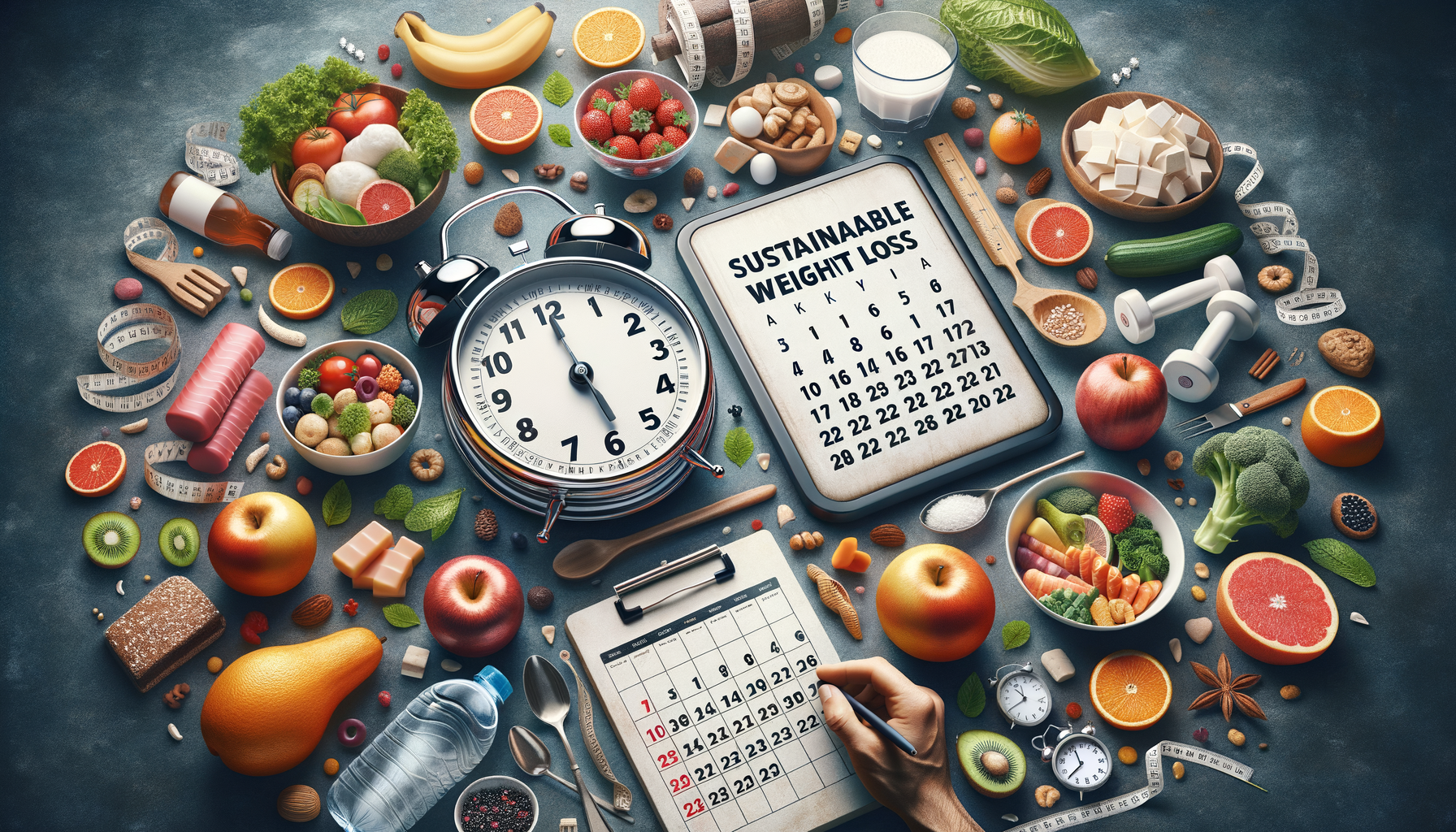Introduction to Sustainable Weight Loss
Embarking on a weight loss journey can often feel overwhelming, but focusing on sustainable methods can make the process more manageable and rewarding. Sustainable weight loss involves adopting habits that can be maintained over the long term, rather than seeking quick fixes that often lead to temporary results. By setting realistic goals, incorporating balanced nutrition, and embracing regular physical activity, individuals can not only lose weight but also enhance their overall health and well-being. This article will explore various aspects of sustainable weight loss, offering practical tips and insights to help you achieve lasting success.
The Importance of Realistic Goals
Setting realistic goals is a cornerstone of sustainable weight loss. Unrealistic expectations can lead to disappointment and may even discourage continued efforts. Instead, focus on achievable milestones that encourage progress and build confidence. A practical approach is to aim for a gradual weight loss of about 1-2 pounds per week, which is considered safe and sustainable by health experts.
Creating a clear plan with specific, measurable, achievable, relevant, and time-bound (SMART) goals can provide a roadmap to success. For example, rather than simply aiming to “lose weight,” a SMART goal might be to “lose 10 pounds in three months by exercising three times a week and reducing sugar intake.”
Realistic goals not only help maintain motivation but also allow for flexibility. Life is unpredictable, and sometimes adjustments are necessary. By setting goals that can adapt to changes, you can stay on track without feeling defeated by setbacks.
The Role of Balanced Nutrition
Balanced nutrition plays a crucial role in sustainable weight loss. Rather than following restrictive diets that cut out entire food groups, focus on incorporating a variety of nutrient-dense foods that provide essential vitamins and minerals. This approach not only supports weight loss but also promotes overall health.
Key components of a balanced diet include:
- Fruits and vegetables: Rich in fiber and antioxidants, they help keep you full and support a healthy metabolism.
- Whole grains: Provide energy and fiber, aiding digestion and satiety.
- Lean proteins: Essential for muscle maintenance, they can also help control hunger.
- Healthy fats: Found in foods like avocados, nuts, and olive oil, they support heart health and can enhance the flavor of meals.
Mindful eating is another important aspect of balanced nutrition. Paying attention to hunger cues and enjoying meals without distractions can prevent overeating and foster a healthier relationship with food.
Incorporating Regular Physical Activity
Physical activity is a vital component of sustainable weight loss, offering numerous benefits beyond calorie burning. Regular exercise improves cardiovascular health, boosts mood, and enhances energy levels. Finding an activity you enjoy increases the likelihood of maintaining a consistent routine.
Consider incorporating a mix of aerobic exercises, such as walking, swimming, or cycling, with strength training to build muscle and boost metabolism. Aim for at least 150 minutes of moderate-intensity aerobic activity per week, as recommended by health experts.
Consistency is key, so start with manageable workouts and gradually increase intensity and duration. Incorporating physical activity into daily life, such as taking the stairs or walking during breaks, can also contribute to overall fitness.
Lifestyle Changes for Long-Term Success
Achieving and maintaining weight loss requires more than diet and exercise; it involves adopting a healthy lifestyle. This includes getting adequate sleep, managing stress, and staying hydrated. Each of these factors plays a role in supporting weight loss and overall health.
Sleep is often overlooked but is essential for weight management. Lack of sleep can disrupt hormones that regulate hunger and satiety, leading to increased cravings and overeating. Aim for 7-9 hours of quality sleep each night to support your weight loss efforts.
Stress management is equally important. Chronic stress can lead to emotional eating and weight gain. Techniques such as meditation, yoga, or deep breathing exercises can help manage stress effectively.
Hydration supports metabolism and can prevent overeating by helping you feel full. Aim to drink plenty of water throughout the day, and consider replacing sugary drinks with healthier options.
Conclusion: Achieving Long-Term Weight Loss Success
Sustainable weight loss is a journey that requires patience, commitment, and a willingness to embrace change. By setting realistic goals, focusing on balanced nutrition, incorporating regular physical activity, and making lifestyle adjustments, you can achieve lasting results that enhance your overall health and well-being. Remember that each step forward is progress, and celebrate your achievements along the way. With dedication and perseverance, sustainable weight loss is within reach.




Leave a Reply